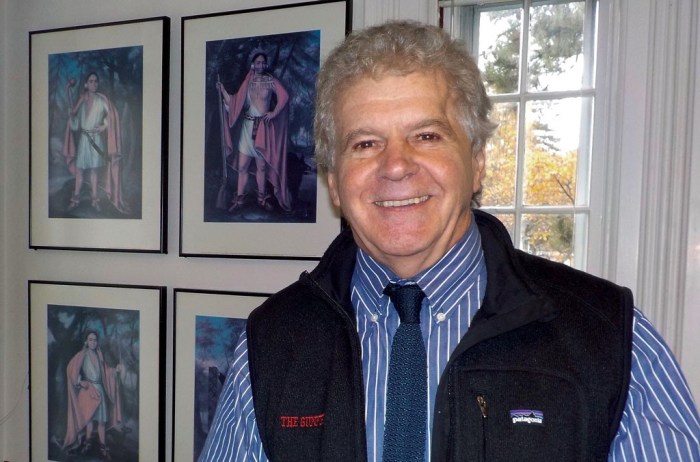First peoples colin g calloway – In the realm of historical scholarship, Colin G. Calloway’s work on “First Peoples” stands out as a seminal contribution, shedding new light on the experiences and perspectives of indigenous communities. Through his rigorous research and insightful analysis, Calloway challenges traditional narratives and offers a nuanced understanding of the complexities surrounding First Peoples’ identity, sovereignty, and cultural resilience.
Calloway’s approach is characterized by a deep respect for the voices and agency of First Peoples, recognizing their unique perspectives and experiences. His work has had a profound impact on the field of Native American studies and has significantly influenced contemporary scholarship and public discourse.
Historical Context

Colin G. Calloway’s work on “First Peoples” explores the complex historical context surrounding the indigenous populations of North America before European colonization.
The term “First Peoples” acknowledges the prior existence and cultural heritage of Native American tribes, recognizing their unique relationship with the land and their status as the original inhabitants of the continent.
Challenges in Defining “First Peoples”
Defining and identifying “First Peoples” poses challenges due to:
- Variations in tribal identities and cultural practices.
- Intertribal relationships and alliances that shifted over time.
- The complexities of colonial policies and land acquisition.
Calloway’s Contributions
Colin G. Calloway is a prominent historian who has made significant contributions to the study of “First Peoples,” a term used to refer to the indigenous peoples of North America. His research and writings have shed light on the experiences, perspectives, and histories of these communities, reshaping our understanding of American history.
Major Works and Impact
Calloway’s major works include New Worlds for All: Indians, Europeans, and the Remaking of Early America(1997) and One Vast Winter Count: The Native American West Before Lewis and Clark(2003). These works have been highly influential in the field of Native American history, earning critical acclaim and numerous awards.
New Worlds for Allexplores the complex interactions between Native Americans and Europeans during the early colonial period. Calloway challenges traditional narratives that portray Native Americans as passive victims of European expansion, instead highlighting their agency and resilience in the face of significant cultural and political changes.
One Vast Winter Countexamines the history of the Native American West before the arrival of Lewis and Clark. Calloway draws upon a wide range of sources, including oral traditions, archaeological evidence, and written records, to reconstruct the lives and experiences of these communities.
Colin G. Calloway, in his book “First Peoples,” highlights the significance of nature in Native American cultures. Just as ferns symbolize growth, resilience, and the enduring spirit of the first peoples, Calloway’s work illuminates the intricate relationship between Native Americans and their environment.
For further insights into the symbolism of ferns, visit what does a fern symbolize .
Approach to Understanding
Calloway’s approach to understanding “First Peoples” is characterized by a deep respect for their cultures, histories, and perspectives. He emphasizes the importance of listening to and learning from Native American voices, and he strives to present a balanced and nuanced account of their experiences.
Calloway’s work has helped to challenge stereotypes and misconceptions about Native Americans. He has shown that these communities were not monolithic, but rather diverse and dynamic, with their own unique cultures, histories, and perspectives.
Key Concepts and Themes: First Peoples Colin G Calloway

Colin Calloway’s work on “First Peoples” delves into the intricate tapestry of Indigenous American history and culture. He explores profound concepts that challenge conventional narratives and illuminate the complexities of Indigenous experiences.
Identity
Calloway emphasizes the fluidity and multifaceted nature of Indigenous identity. He argues that it is shaped by a dynamic interplay of cultural traditions, historical experiences, and interactions with non-Indigenous societies. Calloway’s work highlights the importance of recognizing the diversity and resilience of Indigenous identities in the face of assimilation and colonization.
Sovereignty
Calloway examines the concept of sovereignty as a fundamental aspect of Indigenous self-determination. He traces the historical struggles of Indigenous nations to maintain their autonomy and governance structures. Calloway’s analysis challenges the notion of “Indian sovereignty” as a grant from the United States government, asserting instead that it is an inherent right based on Indigenous traditions and laws.
Cultural Resilience
Calloway explores the remarkable resilience of Indigenous cultures in the face of adversity. He highlights the ways in which Indigenous peoples have adapted and preserved their traditions, languages, and spiritual practices. Calloway’s work demonstrates the power of cultural resilience as a source of strength and continuity for Indigenous communities.
Impact and Legacy

Colin G. Calloway’s groundbreaking work has profoundly shaped our understanding of the complex history and experiences of First Peoples in North America. His research has not only challenged traditional narratives but also provided a more nuanced and inclusive account of their interactions with European colonizers.
Influence on Contemporary Scholarship
Calloway’s work has inspired a generation of scholars to rethink the ways in which they approach the study of Native American history. By emphasizing the agency and resilience of First Peoples, he has shifted the focus away from colonial perspectives and towards the experiences of those who were most directly affected by European colonization.
- His research on Native American diplomacy has led to a greater understanding of the complex political and economic relationships that existed between different tribes.
- His work on Native American resistance to European colonialism has helped to dispel the myth of Native American passivity and has highlighted the active role that they played in shaping their own history.
Impact on Public Discourse, First peoples colin g calloway
Calloway’s work has also had a significant impact on public discourse about First Peoples. His research has helped to raise awareness of the ongoing challenges faced by Native American communities and has contributed to a more informed and respectful understanding of their history and culture.
- His work has been featured in popular media outlets, such as The New York Times and The Atlantic, and has helped to bring the experiences of First Peoples to a wider audience.
- His work has also been used in educational settings, helping to shape the way that students learn about Native American history.
Ongoing Relevance and Legacy
Calloway’s work remains highly relevant today as we continue to grapple with the legacies of colonialism and the ongoing challenges faced by First Peoples. His research provides a foundation for understanding the complex history of Native American-European relations and offers valuable insights into the ways in which we can build a more just and equitable future.
General Inquiries
Who is Colin G. Calloway?
Colin G. Calloway is a distinguished historian and professor specializing in the history of First Peoples in North America.
What are the key themes explored in Calloway’s work?
Calloway’s work centers around the concepts of identity, sovereignty, and cultural resilience among First Peoples, challenging traditional narratives and highlighting their unique perspectives and experiences.
What is the significance of the term “First Peoples”?
The term “First Peoples” refers to indigenous communities who have a long-standing connection to a particular land or region, recognizing their historical and cultural significance.